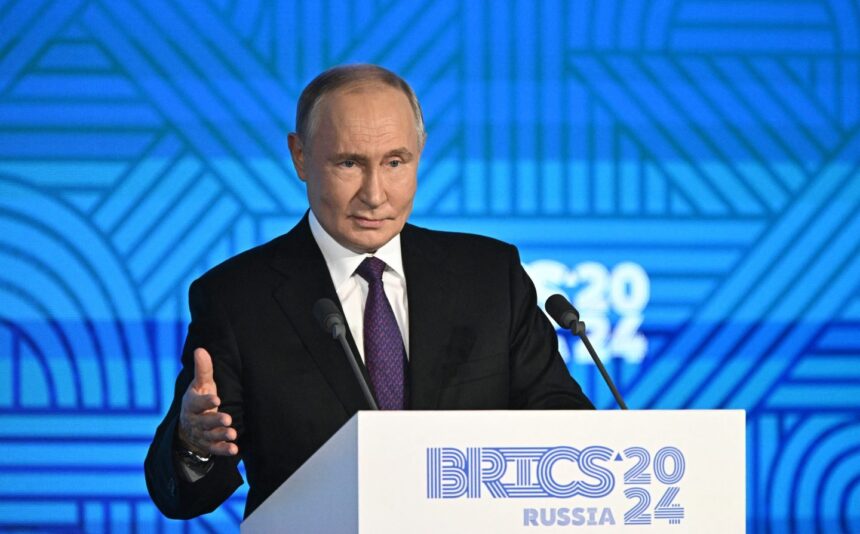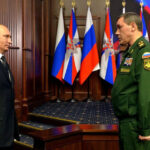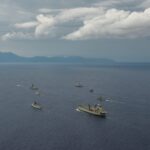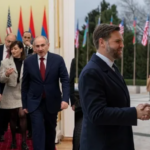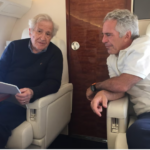Summary by Geopolist | Istanbul Center for Geopolitics
The article describes a multifaceted strategic situation in which Russian President Vladimir Putin is leveraging global and regional weaknesses, especially in light of the United States’ focus on its internal political challenges.
1- Military and Political Moves by Russia:
North Korean Soldiers in Russia: The enlistment of North Korean forces in Russia’s conflict against Ukraine reflects Putin’s readiness to confront Western constraints. Approximately 10,000 North Korean troops, including elite units, have reportedly been deployed to the Kursk region, indicating a notable escalation in Russian military strategies.
Influence in Georgia and Moldova: Russia has been intervening in the political environments of Moldova and Georgia, utilizing disinformation and financial resources to influence electoral results in support of pro-Kremlin candidates. This entails undermining local pro-Western factions and attempting to divert these nations from their EU aspirations.
2- Alignment of Autocratic Powers:
Axis of Adversaries: Columnist Gideon Rachman observes that Russia’s alliances with North Korea, China, and Iran are developing into a cooperative front, posing a threat to Western influence and stability. These alliances enable collective actions that can shift global power dynamics, reflecting a perceived opportunity among authoritarian leaders to reshape international norms.
Kim Jong Un’s Calculated Support: North Korea’s significant military assistance, from cyber capabilities to ammunition and troops, highlights Kim Jong Un’s alignment with Russia and a belief that the United States’ influence is waning. This collaboration also raises the stakes for future North Korean actions, potentially against South Korea.
3- Challenges in Georgia and Moldova:
Moldova: Despite a pro-EU referendum, the close vote indicates Russia’s effective influence operations, which nearly prevented a definitive pro-EU stance. Moldova’s President Maia Sandu faces a runoff election against a pro-Kremlin candidate, underscoring the fragile position of pro-Western leaders.
Georgia: The disputed election has sparked mass protests, with accusations of fraud against the Kremlin-friendly Georgian Dream party. President Salome Zourabichvili’s denouncement of the results highlights the intense struggle for Georgia’s future alignment, either with the EU or under Moscow’s sway.
4- Western Dilemma and Strategic Response:
Risk of US Inaction: The United States, currently preoccupied with internal political dynamics and exhibiting risk aversion, confronts a pivotal decision: to either permit Russia’s unrestrained expansion or to enhance its support for Ukraine and other at-risk areas such as Georgia and Moldova. The new Secretary General of NATO, Mark Rutte, in conjunction with European leaders, is positioned to significantly influence the formulation of a collective response.
Historical Consequence: Rachman posits that the implications are substantial, with the possibility of considerable alterations in global security dynamics. This critical juncture necessitates a reassessment of Western strategy, weighing the risks of escalation against the challenges presented by this emerging coalition of authoritarian states.
The article emphasizes the need for coordinated Western action to resist Putin and his allies’ growing aggressiveness. The growing “axis of adversaries” reflects a strategic alignment that, if uncontrolled, has the potential to shift the balance of power in both Europe and Asia.
Read more here.

